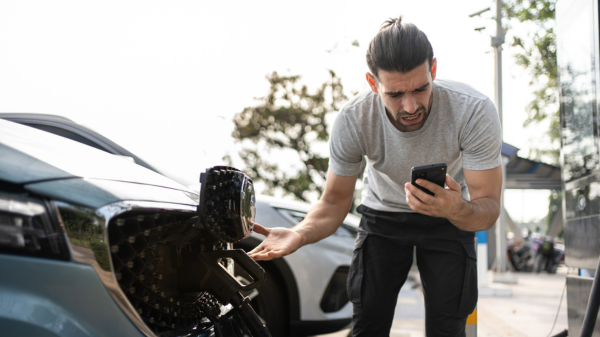On June 5, Virginia Gov. Glenn Youngkin (R) revealed that the state would cease to adhere to vehicle emission standards set by the California Air Resources Board (CARB) and will revert to less strict federal standards beginning in 2025.
Legislation previously signed into law by Gov. Ralph Northam (D) in 2021, required Virginia to adopt CARB’s then-existing standards, Advanced Clean Cars (ACC) I, which had been adopted by 13 other states and the District of Columbia. Subsequently, CARB released new standards, ACC II, requiring all new cars sold in California to be electric by model year 2035.
Youngkin requested an opinion from state Attorney General Jason Miyares as to whether Virginia was bound to comply with ACCII. Miyares issued an official opinion on June 4 confirming that state law does not require Virginia to follow the updated standards.
‘Virginia Is Declaring Independence’
With the AG’s opinion in hand, Youngkin announced that Virginians will once again have the freedom to choose their own vehicles based on their families’ and businesses’ needs, in a press release.
“Once again, Virginia is declaring independence—this time from a misguided electric vehicle mandate imposed by unelected leaders nearly 3,000 miles away from the Commonwealth,” said Youngkin. “The idea that government should tell people what kind of car they can or can’t purchase is fundamentally wrong.”
The federal Clean Air Act includes a waiver for emissions standards adopted by CARB, which other states can choose to follow in lieu of the national standards.
‘EV Mandates Are … Unworkable’
The Virginia Air Pollution Control Board (Board) implemented Virginia’s law adopting the CARB standards with regulations permitting the governor to order them, but it did not require the state to adopt any updated standards, Miyares’ opinion states.
“Although the Board chose to adopt ACC I’s model year standards, which are now set to expire at the end of 2024, it has not chosen to adopt ACC II’s,” Miyares wrote.
The ACC II standards require 35 percent of cars sold beginning in model year 2026, less than two years away, to be electric. Youngkin’s press release pointed out that in 2023 only 9 percent of vehicles sold in Virginia were electric. That means the state would have to more than triple current EV sales in two years to remain in compliance with CARB’s new rules.
These kinds of mandates are wishful thinking and are about control more than they are reasonable, said Miyares in the press release.
“EV mandates like California’s are unworkable and out of touch with reality, and thankfully the law does not bind us to their regulations,” Miyares said. “California does not control which cars Virginians buy and any thoughts that automobile manufacturers should face millions of dollars in civil penalties rather than allowing our citizens to choose their own vehicles is completely absurd.”
Were ACC II followed in Virginia, auto manufacturers that sold a noncompliant vehicle past the 2035 deadline could be forced to pay fines of more than $20,000 per vehicle, which could be devastating for car dealers and consumers.
Legal Challenges and the Road Ahead
Miyares’ opinion states that the Board could choose to adopt ACC II’s standards, in which case compliance would be mandatory; however, the board is not required to do so.
The first set of standards should never have been mandated in the first place, says H. Sterling Burnett, Ph.D., director of the Arthur B. Robinson Center on Climate and Environmental Policy at The Heartland Institute.
“Let’s hope this decision sticks and holds up in court and in the face of legislative challenges I expect to come,” Burnett said. “The previous democratic administration never should have forced California’s emission standards/EV mandates down the throats of VA residents and drivers.”
Other states that adopted California’s standards include most of New England, with the exception of Vermont, in addition to Colorado, Minnesota, Nevada, New Mexico, Oregon, and Washington. Now that Virginia is exiting the plan, one hopes others will follow, says Burnett.
“It’s good that the VA government is getting out of the business of dictating people’s vehicle choices; consumers alone should choose what they want to drive based on the characteristics they care about,” Burnett said. “Let’s hope other states follow suit and that sometime in the future California’s waiver will be withdrawn so it can no longer dictate to the nation its car fleet.”
Linnea Lueken (llueken@heartland.org) is a research fellow with the Arthur B. Robinson Center on Climate and Environmental Policy at The Heartland Institute.
For more on electric vehicles, click here.
For more on Virginia energy policy, click here.
For more on California’s air waiver, click here.


























